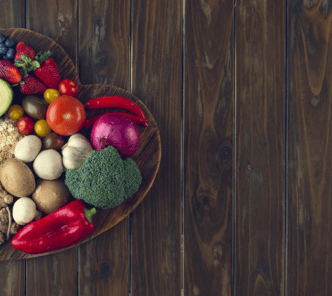 The American Diabetes Association reports that any fruit is fine for a person with diabetes, so long as that person is not allergic to that type of fruit.
The American Diabetes Association reports that any fruit is fine for a person with diabetes, so long as that person is not allergic to that type of fruit.
In fact, studies have found that a higher fruit intake is significantly associated with a lower risk of type 2 diabetes.
However, not all fruits are equally healthy. Fresh or frozen fruits, or fruits packed in their own juice, are better than processed fruits straight from a can or jar, such as applesauce and canned fruit. This is because fruits in cans, jars, or plastic cups may contain added sugar. And added sugar can cause a person’s blood sugar to spike.
For a person with diabetes, one way to select safe and suitable fruits and other high-carbohydrate foods is to check their values on the glycemic index (GI).
The GI is a rating of foods on a scale from 1 to 100. The score indicates how quickly the food may raise blood sugar levels. The body absorbs high GI foods faster than medium or low GI foods, for example.
Foods with a lower GI score are better for helping to control blood sugar levels.
However, a person with diabetes can make smart choices about which fruits they eat.
High Sugar Fruits
Although fruits that score highly on the GI are safe for people with diabetes, a person should monitor their intake. Most fruits do not score highly, but those that do include:
- very ripe bananas
- dried dates
- watermelons
- pineapples
High Carb Fruits
Some people with diabetes follow a low carb diet to reduce the impact of carbohydrates on their blood sugar levels.
It is worth noting that high carb fruits still may have fewer carbohydrates than other, less nutrient-dense snacks. For example, one large banana contains about 30 grams (g) of carbohydrates, while a chocolate muffin contains around 55 g.
A person should, therefore, focus on limiting their intake of other high-carb foods before cutting out fruits.
Most guidelines recommend that adults and children eat 5 servings of fruits and vegetables each day. This is still true for people with diabetes.
Other guidelines recommend making sure that half of the plate at each meal contains fruits, vegetables, or both.
For a person with diabetes, half of each meal should be nonstarchy vegetables, rather than fruit. The remaining half should be sources of protein and high fiber starches, such as beans or whole grains. Many experts also recommend including healthy fat at each meal to encourage a feeling of fullness and enhance absorption of antioxidants and vitamins.
One serving is a medium-sized fruit, or a serving the size of a baseball. The serving size of smaller fruits, such as berries, is 1 cup.
For processed fruits, such as applesauce and fruit juice, the serving size is half a cup. And for dried fruits such as raisins and cherries, it is 2 tablespoons.
As with vegetables, focusing on variety can be a great way to absorb the right nutrients and enjoy a range of flavors.
Eating enough fiber plays an important role in managing diabetes.
A diet high in soluble fiber can slow the absorption of sugar and control blood sugar levels. Many fruits are high in fiber, especially when a person eats the skin or pulp. The high fiber and water contents of many fruits makes them filling.
Diets that contain enough fruits and vegetables can reduce the risk of obesity, heart attack, and stroke. Obesity has links to type 2 diabetes.
Because fruits are high in fiber and nutrients, they are a good choice when a person is planning meals. But consider limiting the amount of processed fruits on the menu, such as applesauce and fruit juices, because these have had their fiber removed.
Other health benefits of fruit
People with diabetes should have a balanced diet that provides enough energy and helps them maintain a healthy weight. Some fruits, such as watermelon, are high in sugar but can be part of a healthy diet in moderate amounts.
Opting for fruit can also prevent a person with a sweet tooth from reaching for candy and other foods with low nutritional value. Most fruits are high in nutrients and low in fat and sodium. Fruits also often contain nutrients that other foods do not.
Bananas contain potassium and tryptophan, an important amino acid. Citrus fruits, such as oranges and grapefruits, are rich in vitamins A and C, which are powerful antioxidants.

